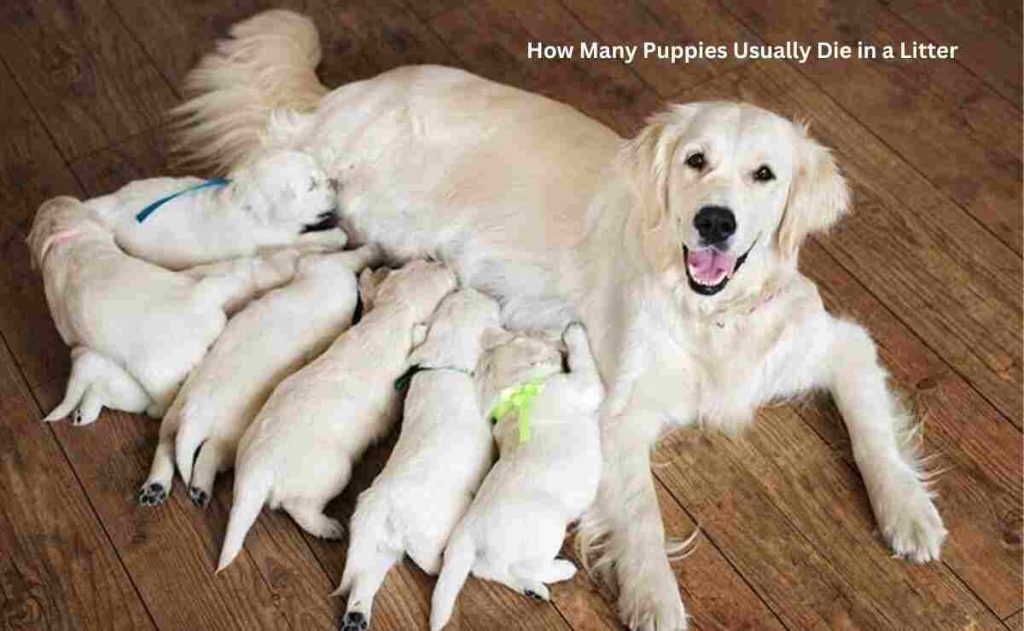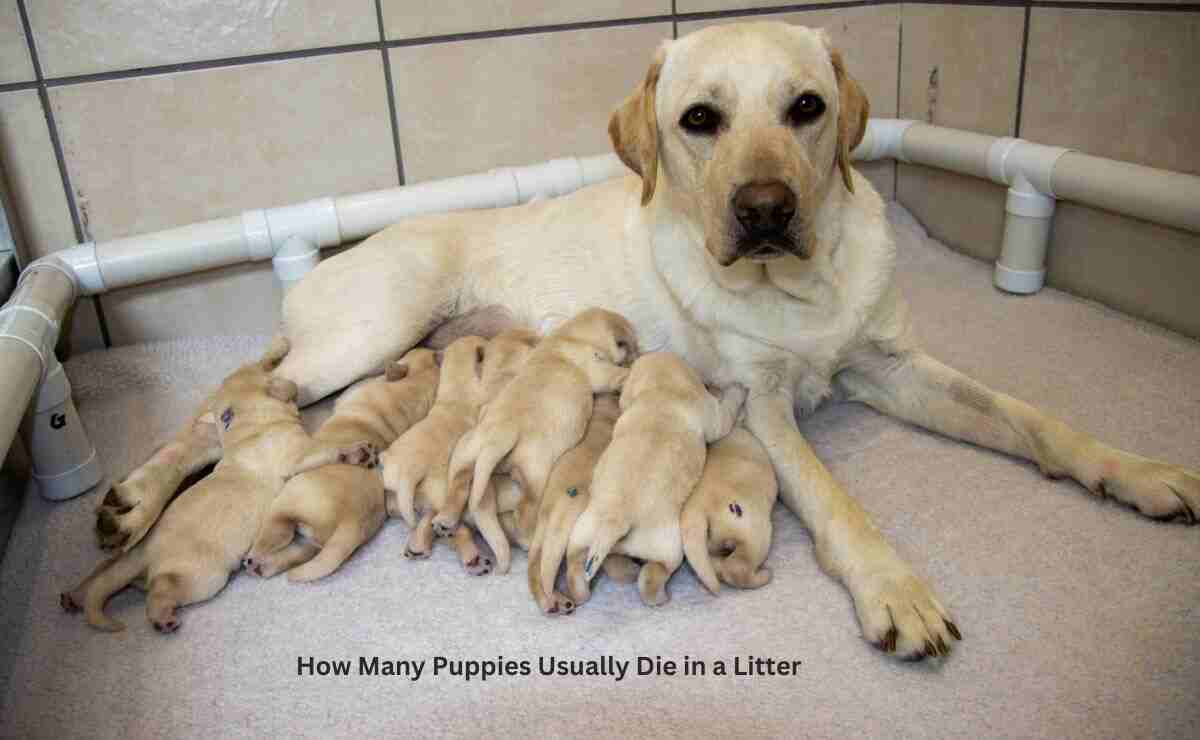Do you know how many puppies usually die in a litter? If you already have dealt with a pregnant dog, you might already know that many puppies die after birth. But if you are new to dealing with a pregnant dog, then you might be spending a hard time accepting this sad reality.
This unfortunate event can turn the journey of excitement into scary and overwhelming. However, knowing about it in a deeper sense can help owners to calm down and be prepared.
How Many Puppies Usually Die in a Litter?

The number of deaths in a litter mostly depends on the litter size. The larger the litter is, the more puppies die. But an approximate percentage of how many puppies usually die in a litter is up to 30%. However, in very rare cases it can be up to 50% too.
In a litter of 8 puppies, four or five puppies can survive at best. Likewise, in a 12 puppies litter, only five to six puppies survive.
Why Do Puppies Die in Their First Week After Birth?
Newborn puppies stay very vulnerable in their first few weeks. In the first 7 to 10 days, most weak puppies die. The main reason for the deaths is their poor immunity system.
Puppies get an immunity system for survival from the mother which is kind of first serve first come served. So consequently, some of the puppies fail to develop their immunity system.
Having an underdeveloped immunity system, the puppies struggle to fight infections and parasites. Parvovirus and herpes are the most common viruses that cause the death of puppies in their first week after birth. There are some infections that cause puppy deaths too, for instance, staphylococcus and streptococcus.
In the first week after birth, puppies find it hard to regulate themselves. Moreover, since they do not have any fat restored in their body, they fail to protect themselves.
Then again, puppies remain very sensitive to temperature in their first week. As they cannot control their body temperature, they might get extremely cold and pass away.
Can All the Puppies of a Litter Survive?
I have mentioned earlier that the survival of puppies mostly depends on the size of a litter. Also, I have also said that the larger the litter is, the more puppies die. So you might be wondering if the smaller the litter is, the less puppy die.
Well, yes. It is possible that all of the puppies in a litter survive. Most commonly, dogs carry around 8 to 12 puppies, but rarely, some dogs may carry 5 puppies too. And if your dog carries lesser puppies, all the puppies can get enough nutrients.
However, you can ensure most survival by taking extra care of your dog. The care should begin from the moment when your dog gets pregnant. You must give her extra food. Moreover, providing proper nutrients is a must too.
You can also take advice from the veterinarian about extra care. Then again, to make sure all the puppies survive, taking extra care of the puppies is crucial as well.
Things to Do Immediately After the Birth of a Litter
The first few hours are a very sensitive time for newborn puppies. If you do not take care of the mother and the puppies well in the first few hours after the birth, they might get into danger.
The first thing that you need to keep in mind is the warmth of the breeding area. Make sure the temperature in the area is not less than 85 degrees fahrenheit.
Then, right after the birth make sure your dog is cleaning the puppies well. After cleaning the puppies, she should chew the umbilical cord.
Your duty is to support the mother, help her and encourage her to nurse the puppies. Give her some water and calm her down. Monitor the puppies and observe if there are any abnormalities. Don’t separate the puppies from their mother.
From the first hour, start nursing the puppies. Encourage the mother and the puppies to nurse several times within the first three hours after birth. Lastly, within 48 hours make sure the vet checks the mother and the puppies.
Best Boost Puppies’ Immunity System
The best element to boost puppies’ immunity system is their mother’s milk. Mother’s milk contains many strong and effective nutrients to secure puppies’ good health.
Mother’s milk contains colostrum that is enriched with most antibodies that the puppy need. This colostrum ensures the protection of puppies from germs and diseases for one to two months.
Most immunoglobulins are obtained within the first 24 hours. So it is very important that your puppies drink their mother’s milk as soon as they can. Unfortunately, the concentration of antibodies keeps on decreasing with time, which does not let all the puppies get maternal immunity.
However, in the first 2-3 weeks, puppies can only consume their mother’s milk so during that time make sure your dog stays healthy and well-fed. But after, the first weeks, you should feed them dry food that contains appropriate nutrition.
Ways to Deal with Puppy’s Death
It’s a very sad moment when you find your puppies dead after birth. Many might think the mother does not realize her puppy’s death but they do. You should give the mother enough time to realize that her puppy has passed away.
After the mother realizes the death, let her grieve. Let her keep her puppies to herself. Naturally, dogs separate the dead puppies but if your dog keeps them close, make sure you remove the puppies soon but secretly. Do it when the mother is sleeping or not looking because the separation might cause distress to the mother.
Bury the dead puppies yourself or contact animal control or any vets to take care of the bodies.
I know how much it hurts to say goodbye to the new little members. But accepting the reality as soon as possible is always better. You need to remember you have to stay strong to keep the dog and the surviving puppies healthy.
Conclusion
No matter how many puppies usually die in a litter, it will hurt. Three, two, or even one, it will hurt while seeing the puppies dying. But being stronger and accepting the natural event is all one can do.
However, taking proper care of the dog and the puppies can still increase the possibility to have them survive. So take care of them as much as you can.
